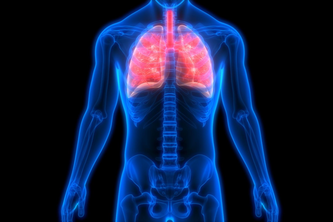
The University of Minnesota announced today that it has been fully reaccredited with special distinction by the Association for the Accreditation of Human Research Protection Programs Inc. (AAHRPP), an independent, nonprofit organization that ensures research institutions meet rigorous standards for quality and protection. The reaccreditation comes as the University wraps up the initial implementation of significant improvements to its processes related to research involving human participants.
“The University has demonstrated its commitment to meeting, upholding and exceeding the highest ethical standards in research practices involving human participants,” said University President Eric W. Kaler. “Particularly when it comes to people with devastating health conditions—and their families, friends and communities—we need to keep advancing new treatments that alleviate suffering while still according the highest level of attention and respect to research participants. This reaccreditation with special distinction provides strong recognition of the University faculty and staff who have committed considerable time and energy to improving our practices.”
The process of reaccreditation began in April 2015, and, following a July 2015 site visit, AAHRPP gave the University’s Human Research Protections Program (HRPP) a status of “Reaccreditation Pending”. This status meant the University retained AAHRPP accreditation but was required to implement changes to meet several criteria before regaining full reaccreditation status on Dec. 19, 2016.
The reaccreditation process took place contemporaneously with substantial changes to human research policies and practices at the University of Minnesota, changes prompted by complaints about past cases of research participant recruitment and treatment. In early 2015, the University underwent a rigorous external review and assessment of its human research program. University leaders then began planning and implementing improvements and, by the end of 2016, had implemented more than 60 recommendations from the review panel, along with additional items not recommended by the panel.
Among the enhancements are an expanded and restructured Institutional Review Board (IRB), which increased the number of members and the range of expertise represented; new checklists, worksheets and tools that provide transparency for researchers applying to the IRB; additional professional training for researchers and staff on the updated policies and practices; expanded post-approval review activities to monitor and support compliance; and a new online IRB management system that is scheduled to launch in March.
The special distinction that accompanies the reaccreditation commends the University for its new policy on adults with limited or diminished capacity to consent to participating in research. The policy stipulates a high level of protection to such potential participants and clearly conveys these expectations to the research community.
“There are accountability metrics embedded in our new processes and plans that will allow us to routinely evaluate their effectiveness and ensure that we maintain the highest standards around human research protections,” said Debra Dykhuis, executive director of the University’s HRPP. “We have reached the end of our implementation phase for advancing human research protections, but this work will continue to receive the attention it deserves.”
Sophia Vinogradov, M.D., was named the new head of the Department of Psychiatry in late 2016. Psychiatry has been the focus of criticism for some practices related to human participants in research, and has been involved in many of the changes from the implementation plan.
Dr. Vinogradov says the changes and improvements are important and will put the department in a better position to conduct important research going forward.
“Research involving human participants is critical as we look to bridge the gap between our growing understanding of brain science and the need to translate that knowledge into new treatments and cures for patients,” said Vinogradov. “We are always looking for ways to improve our practices, to be sure we’re working in partnership with patients and families, and to be clear about recruitment and consent issues particularly for vulnerable patients. This is how we establish trust, improve care, and advance science all at the same time.”
For more information on AAHRPP’s accreditation process, visit www.aahrpp.org.
- Categories:
- Science and Technology





